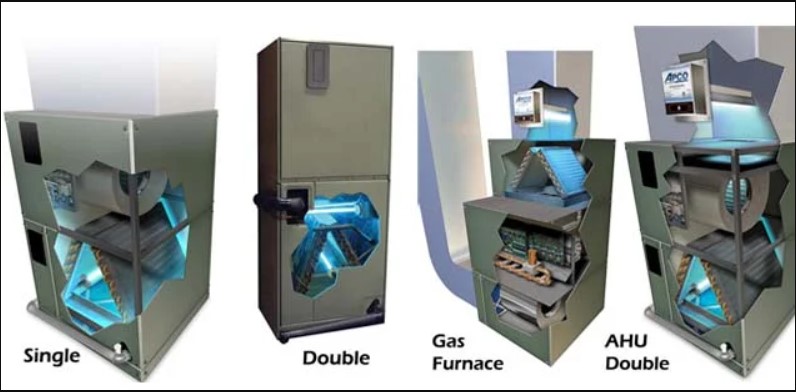
The Energy Star Program certifies contractors that can build homes with efficient HVAC systems. There are many tools available from the EPA to help you find contractors. If you're interested in the tax credit to help you find contractors for energy-efficient HVAC systems you can refer to the EPA contractor recruiting tools to see if a contractor is eligible.
Homes Certified Energy Star
The ENERGY STAR Certified Homes programme was established in 1995. It has gone through many changes over the years to conform to the codes and builder standards. The ENERGY STAR Certified Homes are a marked improvement on a non-labeled house. To learn more about the ENERGY STAR certification process, visit the ENERGY STAR Certified Homes website.
ENERGY STAR has been granted to manufactured housing and affordable housing, in addition to existing and new construction. Homes that are certified ENERGY STAR have been built to be more efficient than the average home and can help homeowners save money. The certification can also be accepted by over twenty state governments and housing finance programmes. Although it is impossible to test every home for ENERGY STAR certifications, homes that are ENERGY STAR certified meet or exceed strict standards.

Requirements of the ESVI Program
To be eligible to join the ENERGY STAR Verified HVAC Contractors Program, you must comply with the ESVI Program's requirements. The EPA and other energy agencies are looking for HVAC contractors who offer the best in HVAC design and installations. Contractors can use this credential to market themselves and gain access to some of the most respected builders in the sector. Additionally, contractors who have earned this credential have fewer complaints and sell more premium products. Independent third-party oversight groups have been set up by the EPA to supervise and train contractors.
ESVI is based off the Air Conditioning Contractors of America's HVAC QI Standards. This certificate certifies that the contractors have met the standards and completed the installation of efficient HVAC systems. This certificate is valid only for one year. It identifies the contractor's commitment towards energy efficiency. There are additional benefits for homeowners. As a result, the ESVI program is an investment for the homeowner and the HVAC contractor.
Credentialing requirements
HVAC contractors must satisfy several criteria before they are eligible to work on homes certified with ENERGY STAR. The process for credentialing a contractor involves reviewing their experience, qualifications, and training. Contractors must have at least a basic knowledge of energy-saving HVAC equipment and know how to calculate it. These requirements are designed for energy efficiency, comfort, durability, and increased home durability.
The EPA has outlined the training HVAC contractors should undergo to be eligible for this credential. This will give clients peace of heart that their home meets EPA standards. Performance Point will inspect the final inspection, which may take a few weeks or days. HVAC contractors that earn this credential can be trusted to install energy-efficient systems.

Tax credit
The federal tax credit can be used to pay for energy-efficient upgrades when you buy a new HVAC unit. Energy-efficient HVAC systems can be eligible for the Residential Energy Efficient property credit, which is worth up $500. If you are considering upgrading, be sure to check the system's ENERGY STAR(r). To check if your system qualifies for this credit, visit AHRI's website.
Federal tax credits can also be offered for HVAC contractors who are energy-efficient. These credits can be deducted directly from your income. Many local energy companies offer rebates for Energy Star lighting and appliances. These incentives are available in many ways. Visit the ENERGY STAR Rebate Finder if you are interested in saving money when installing new HVAC systems. If you do not qualify, contact your local utility office or energy company to determine if rebates or credits may be available.
FAQ
What is the scope of my SCA?
The scope of the work will be specified by your SCA, which will include how long it will take, what materials will be used, what equipment will be needed, and whether special permits will be required.
When do I have the obligation to pay for the service/contractor
The type of service is dependent on how much you pay. If you hire a contractor for a roof installation, payments would be made as soon as the work is completed. In contrast, if you buy a product from a supplier, such as a kitchen range cooker, you might only pay after receiving and testing the item.
What documents should I bring when I apply for building permission?
Your SCA will not suffice. You must also provide evidence that:
-
Visitors can park in the ample parking lot.
-
There are several access routes that can be used.
-
All utilities are readily available.
-
All works must comply with applicable planning regulations.
Statistics
- (3) The contracting officer may provide for a contract price adjustment based solely on a percentage rate determined by the contracting officer using a published economic indicator incorporated into the solicitation and resulting contract. (acquisition.gov)
- Depending on the client's trustworthiness and financial stability, a deposit is usually 10 to 50% of the total contract amount. (lawdepot.com)
- (1) Ascertain the extent to that offers are based on the payment of overtime and shift premiums; and (2) Negotiate contract prices or estimated costs without these premiums or obtain the requirement from other sources. (acquisition.gov)
- Don't take their anger personally, they are mad about the situation 99% of the time. (activatemylicense.com)
- Reasonable late fees go up to 25% per year on unpaid sums. (lawdepot.com)
External Links
How To
How can you create a simple service contract?
A contract should be written in plain English using short sentences and paragraphs. It should include all relevant information, including what the customer gets for his/her money. It should also clearly state the price at the end.
The language used should be easy to understand by anyone reading it and should not use legal jargon.
You should avoid using complex words like 'and' and 'or' because they are difficult to read. Also, avoid using technical terms unless they are necessary.
Use bullet points whenever you can to make the text more readable.
Avoid including too many details in your contract. Write only the essential information.
Avoid making promises or giving guarantees regarding the performance of your service. Let the customer know immediately.
Also, state clearly when the service will start and finish.
It is important that the contract includes all details about payment.
If the customer does not pay the invoice, you must receive full payment before you can start work.
Keep copies of any documents that are related to the contract. These include receipts, invoices, and contracts. These documents should be kept safe.
Sign anything only after you have thoroughly reviewed it.
You should always ask permission from the customer before adding something to your contract.
It is important to always have a copy for future reference.